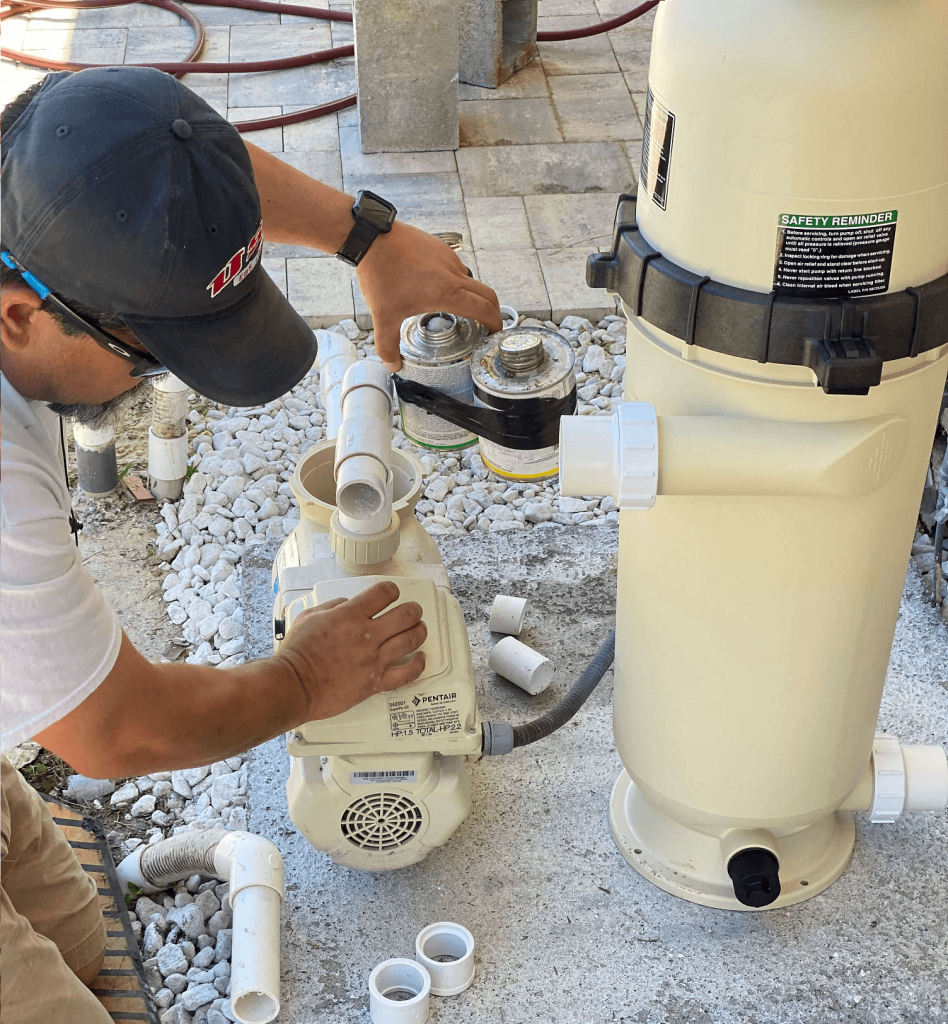Proactive Water Treatment Steps: Buying Long-Term Water Quality
Proactive Water Treatment Steps: Buying Long-Term Water Quality
Blog Article
Understanding the Key Parts of Effective Water Filtering Systems

Relevance of Water Purification Equipment
Water filtering systems play an essential role in making certain accessibility to risk-free and clean alcohol consumption water by successfully getting rid of pollutants and impurities. These systems are important in addressing the expanding concerns over water top quality and the prospective wellness dangers associated with eating polluted water. By utilizing numerous filtration devices such as reverse osmosis, activated carbon, and UV sanitation, water filtration systems can effectively eliminate dangerous substances like germs, viruses, hefty metals, and chemicals from the water.
Furthermore, water purification systems help to enhance the preference and odor of water by getting rid of chlorine, debris, and other contaminants that can influence its quality. Water Softeners. This improvement in water top quality not only makes it a lot more tasty but also motivates people to consume alcohol a sufficient amount of water daily, promoting much better hydration and total health
Types of Filtration Parts

Physical filters are designed to physically strain out pollutants from the water. These filters can be made from products like ceramic, carbon, or perhaps sand, and they function by capturing particles larger than the filter's pores as water passes through.
Chemical filters utilize different chemical procedures to eliminate impurities from the water. Instances consist of turned on carbon filters, which adsorb contaminations, and turn around osmosis membrane layers, which use stress to different impurities from the water.
Organic filters make use of living microorganisms like algae or microorganisms to damage down natural issue and contaminants in the water. These filters are usually made use of in wastewater therapy plants or all-natural water filtration systems.
Recognizing the various sorts of purification parts is vital for picking one of the most appropriate water filtering system for particular purification needs.
Feature of Debris Filters
Debris filters play an important function in water filtering systems by efficiently capturing strong fragments suspended in the water. These filters are usually the first line of protection in a purification system, eliminating larger particles such as sand, silt, dust, and rust prior to the water relocates with finer filtration phases. By capturing these sediments, the filters stop them from getting to downstream components, therefore extending the life-span and effectiveness of the entire system.
The feature of sediment filters is vital in keeping water high quality and protecting delicate equipment from damages brought on by debris. In addition, by removing noticeable bits, sediment filters boost the quality and preference of the water. Frequently cleaning or changing sediment filters is necessary to guarantee optimum performance. Disregarding this maintenance can bring about clogging, lowered water circulation, and endangered purification performance. On the whole, debris filters are vital elements that contribute dramatically to the performance of water purification description systems.
Duty of Activated Carbon Filters
Playing a crucial role in water filtration systems, activated carbon filters are instrumental in removing contaminations and impurities from the water supply. As water passes via the filter, the turned on carbon holds and draws in onto the pollutants, guaranteeing that the water that comes out on the various other side is cleaner and safer for intake.
Activated carbon filters are very efficient at boosting the preference and odor of water by minimizing chemicals that can affect its top quality. Due to their flexibility and integrity, triggered carbon filters are a crucial part in making sure that water is purified to the greatest standards prior to getting to consumers.
Recognizing Reverse Osmosis Solutions
Reverse osmosis systems are innovative water filtering systems that use a sophisticated procedure to remove pollutants and contaminations from drinking water. These systems function by using pressure to the water, requiring it via a semi-permeable membrane. This membrane layer works as a barrier, enabling just pure water molecules to travel through, while blocking larger molecules such as minerals, chemicals, and various other contaminations. As a result, the water that appears beyond is substantially cleaner and more secure for consumption.
One secret advantage of reverse osmosis systems is their capability to get rid of a wide variety of contaminants, including heavy metals, dissolved solids, infections, and bacteria. This makes them extremely reliable in enhancing the total top quality and safety of drinking water. Furthermore, reverse osmosis systems are reasonably low-maintenance and can be set up under the sink or in a central filtering system, giving practical access to tidy water throughout the house. On this contact form the whole, comprehending how reverse osmosis systems function can assist people make informed choices concerning their water purification requirements.
Verdict
In conclusion, efficient water filtration systems are critical for making sure clean and risk-free drinking water. The key parts of these systems include debris filters, triggered carbon filters, and turn around osmosis systems. By comprehending the function and role of each element, individuals can make enlightened choices when selecting a water purification system. It is very important to prioritize the quality of water in order to promote total health and well-being.
Water purification systems play an essential function in guaranteeing accessibility to risk-free and clean alcohol consumption water by properly getting rid of contaminants and impurities. By making use of numerous filtering mechanisms such as reverse osmosis, triggered carbon, and UV sterilization, water filtration systems can effectively remove harmful substances like germs, viruses, heavy metals, and chemicals from the water supply.
Debris filters play a crucial function in water filtration systems by properly catching strong fragments put on hold in the water (Water Softeners).Playing a critical function in water filtration systems, activated carbon filters are critical in getting rid of impurities and contaminants from the water supply.Reverse osmosis these details systems are sophisticated water filtering systems that use a sophisticated process to eliminate impurities and impurities from alcohol consumption water
Report this page